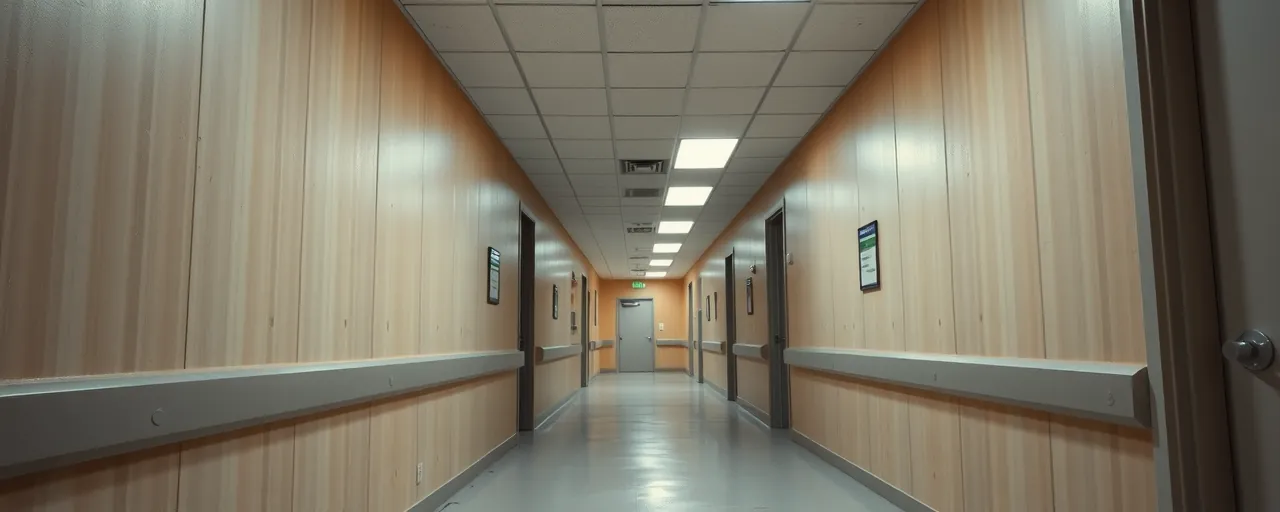A Decision That Stings
Yesterday, the House Energy and Commerce Committee voted to advance a bill cutting $880 billion from Medicaid over ten years. In New Jersey, where two million people depend on the program, the news landed hard. Families, seniors, and people with disabilities now grapple with questions about their health care. Congressman Tom Kean, among others, backed the measure, sparking a heated debate about budgets versus human lives.
The plan aims to curb 'waste, fraud, and abuse,' its supporters claim. Yet, for many New Jerseyans, the cuts threaten access to critical care, from insulin to cancer treatments. This clash between fiscal priorities and personal well-being drives a broader national argument about Medicaid’s role.
Medicaid’s Reach in New Jersey
One in four New Jerseyans relies on Medicaid, spanning kids in Camden to retirees in Basking Ridge. The program covers hospital visits, prescriptions, and nursing home care, often for those with no other options. In places like Fanwood and Netcong, residents have shared fears of skipping treatments or rationing medications without it. For them, Medicaid is a vital safety net.
The state’s varied landscape heightens the stakes. Rural clinics struggle with staff shortages, while urban hospitals face soaring costs. A drop in federal funds could force New Jersey to raise taxes, trim benefits, or restrict eligibility, each choice rippling through communities with tangible consequences.
Arguments for Trimming the Program
Those backing the cuts, including House policymakers, argue Medicaid’s rapid growth strains federal budgets. They reference studies, such as the Oregon Medicaid Experiment, which raised doubts about the program’s health benefits. Some assert states exploit provider taxes to secure extra federal funds without enhancing care. Freezing these taxes and adding work requirements, they say, could save billions while fostering state accountability.
The Congressional Budget Office projects the plan would shave $625 billion from the deficit over a decade. Supporters see this as a path to fiscal health, arguing states can use fixed funds to focus on the neediest while preserving essential services.
The Fallout of Reductions
Health advocates and some lawmakers counter that the cuts could undo years of progress. CBO estimates suggest 7.6 to 13.7 million Americans might lose coverage by 2034. In New Jersey, this could mean children missing vaccinations, seniors losing home care, or hospitals closing. Rural and low-income areas, already underserved, face higher risks of uncompensated care costs.
Past efforts to limit Medicaid, like those in 1981 and 2017, met fierce resistance. Advocates rallied with stories of families struggling—parents unable to afford inhalers, veterans losing therapy. These narratives, amplified through campaigns, aim to sway lawmakers wary of public backlash.
New Jersey’s Tough Choices
With a strained state budget, New Jersey faces hard decisions if federal Medicaid funds shrink. Cutting optional benefits, like vision care, or reducing provider payments could drive doctors away. States like those in the Deep South, hit by earlier cuts, saw coverage shrink and wait times grow. New Jersey’s urban-rural gaps could widen, leaving some residents with few care options.
In towns like Flemington and Mountainside, advocacy meetings have spotlighted local concerns. Residents fear delayed surgeries or untreated illnesses. State leaders, meanwhile, must plan for a future with less federal support, balancing health needs against other priorities.
What Comes Next
The bill now moves to the House Budget Committee, where tensions will likely escalate. Some lawmakers, eyeing the 2026 elections, may push for milder changes, while others demand bolder savings. New Jersey’s congressional delegation faces pressure to shield constituents, with several pledging to oppose the cuts on the House floor.
For New Jerseyans, the impact feels urgent. A family in Far Hills, a retiree in Fanwood, or a child in Netcong could face changes soon. The task is to align fiscal goals with the health of millions—a complex balance that’s deeply human and undeniably political.
As the state braces, one truth stands out: choices made in Washington will shape lives, hospitals, and communities for years. Whether those changes bring stability or struggle remains an open question.
